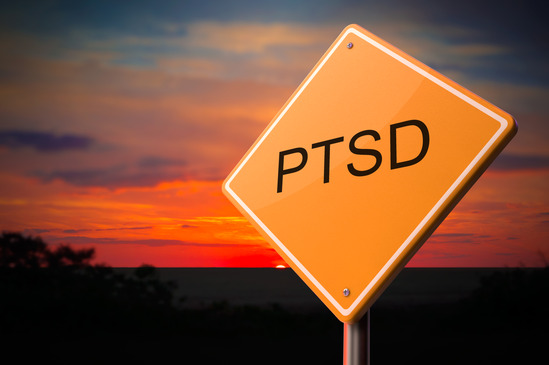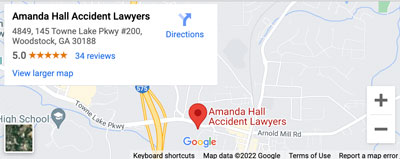
Amanda Hall Injury Law is a personal injury lawyer who helps victims and families who are struggling with post-traumatic stress disorder in the aftermath of a car accident. Post-traumatic stress disorder can impact individuals who have survived a traumatic or life-threatening accident, including car accidents, truck accidents, DUI crashes, motorcycle accidents, or workplace injuries. While not everyone experiences post-traumatic stress disorder after a traumatic accident, those who do go on to develop symptoms require medical care. PTSD may not always be diagnosed immediately after an accident. In fact, it can take several months to know for sure whether a person has PTSD. It is normal to experience stress and depression following a traumatic experience, and it can be normal to experience nightmares and even reliving the traumatic experience in the days and weeks following a serious car accident or injury. PTSD is characterized by its intensity and duration. Victims may suffer from anxiety, nightmares, flashbacks, and mood changes that last longer than several months after a traumatic event. If you or a loved one are suffering from PTSD following a car, truck, motorcycle, DUI, or workplace accident, you may have certain rights under the law. Amanda Hall Injury Law are personal injury lawyers in Acworth, Georgia who may be able to help you seek compensation for your medical expenses, lost wages, rehabilitation expenses, and pain and suffering damages. Contact Amanda Hall Injury Law, personal injury attorneys in Acworth, Georgia today for a free initial consultation. Our firm can review your case and help you understand your next steps.
What are the Symptoms of PTSD?
One of the difficulties facing sufferers of PTSD is that it can’t be diagnosed by doing a brain scan or a blood test. It can’t even be diagnosed immediately after a car accident. It might be weeks before a person experiences the ongoing symptoms that characterize PTSD. What are the symptoms of post-traumatic stress disorder? According to the National Institute of Mental Health, PTSD is characterized by the following symptoms:
- Flashbacks and nightmares. Individuals who suffer from PTSD might experience flashbacks or intrusive memories of their accident. They may experience nightmares as well. These symptoms can impact a person’s daily life and routine, and can interfere with a person’s concentration or ability to work.
- Avoiding situations that remind you of the traumatic experience. If you were hurt in a car or truck accident, you may not want to drive a car or may not even want to ride in a car. If you find yourself avoiding the road or the intersection where the accident took place, you might also be suffering from PTSD. Other avoidance symptoms can involve staying busy to avoid thinking about the accident. If your accident took place at work, you may struggle to return to work. Avoidance symptoms can impact a person’s daily life and ability to work.
- If you feel like you are constantly tense, have trouble, sleeping, or feel irritable, you may be experiencing reactivity symptoms. Individuals who suffer from PTSD may be in constantly high states of alert and arousal.
- Mood and Thinking Issues. PTSD can impact all aspects of your thinking and mood. Individuals might blame themselves for the traumatic experience even if they were not at fault. They may have extremely negative thoughts about the event and about their safety in the world. Individuals might become numb to emotions or they may become depressed. Some people find it difficult to enjoy former life activities.
Post-traumatic stress disorder can impact all aspects of a person’s life. Mood symptoms can impact relationships and your ability to enjoy former life activities. Reactivity symptoms can make it difficult to focus at work or school. Avoidance symptoms can make it tough to get around town, especially if you are avoiding cars and driving, or work. Nightmares and flashbacks can interfere with sleep. If you or a loved one were recently diagnosed with PTSD or if you are experiencing any of these symptoms, it is important to receive proper treatment. Without treatment, the symptoms of PTSD can get worse and can even lead to other issues like substance abuse or alcohol addiction. If you or a loved one are struggling to get rehabilitative care because of the costs or are struggling to make ends meet due to missed time from work, consider speaking to Amanda Hall Injury Law, personal injury lawyers in Acworth, Georgia today. Our attorneys may be able to help you make a claim with insurance companies or seek damages from negligent parties to pay your bills.
Treatment for PTSD
Treatment for PTSD can make a big difference in quality of life and outcomes. If you or a loved one is suffering from PTSD following a car accident or other accident, Amanda Hall Injury Law may be able to assist you with seeking a recovery to help you get the treatment you may need and deserve. Treatment for post-traumatic stress disorder can include therapy and counseling, exposure therapy to situations that cause anxiety, cognitive behavior therapy to help with negative thinking, and medication to help with sleep and mood changes. Many patients benefit from a combination of therapies. Quality medical care can often result in good outcomes.
If you were injured on the job, you may be entitled to make a worker’s compensation claim for treatment for your injuries. If you were injured in a car or truck accident, you may be entitled to make a claim against either your insurance company or the other party’s insurance company. However, you may only have a limited time to make a claim. Amanda Hall Injury Law are Acworth, Georgia personal injury attorneys who offer clients a free initial consultation during which we can review your case, estimate the value of your claim, identify responsible stakeholders like insurers or negligent parties, and fight to help you get the best possible settlement permitted under the law. Time is of the essence. Contact Amanda Hall Injury Law today.







Leave a Reply
Want to join the discussion?Feel free to contribute!